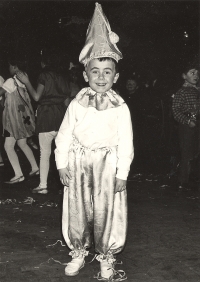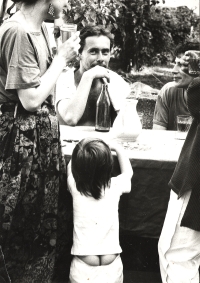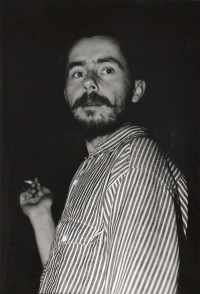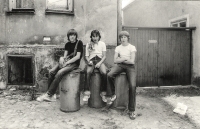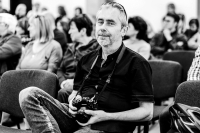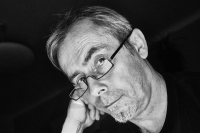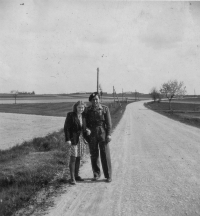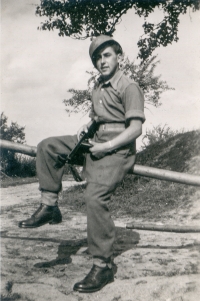We looked to the future without hope or perspective

Download image
Petr Palarčík was born on 18 October 1963 in Olomouc into the family of Adolf and Marie Palarčík. His father enlisted at the age of 16 as a Wehrmacht soldier on the Western Front, where he managed to defect to the Allies and took part in the fighting for the port of Dunkirk under General Alois Liska. Adolf Palarčík joined the Communist Party in 1948, but left it after the invasion of the Warsaw Pact troops in August 1968. His son had political problems because of this, and was not allowed to study his dream artschool. Eventually, on his mother’s intercession, he was admitted to the Sternberg Gymnasium, which at that time was considered a place where people uncomfortable for the regime studied and taught. In his teens, Petr was exposed to the poetry of Václav Hrabě and the music of the underground band The Plastic People of the Universe - during the 1980s he became involved in artistic circles around the samizdat luminaries Rostislav Valusek, Václav Burian and Eduard Zacha. To avoid military service, two months after enlisting he simulated suicidal tendencies, for which he later received a blue book. At the end of the 1980s, he became acquainted with the personality and work of photographer Prof. Jindřich Štreit, at whose home in Sovinec he signed the petition Several Sentences. After the Velvet Revolution, Petr was at the birth of the Votobia publishing house, which was patronized by such Moravian underground personalities as Jaroslav Erik Frič, Jiří Kuběna, Tomáš Koudela and Petr Jüngling. After the break-up of Votobia, Petr Palarčík began to work as a freelance book graphic artist, and later he also worked as a photographer. In addition, he published two collections of poetry. At the time of the interview (2023) he lived with his wife Alena in Olomouc.
